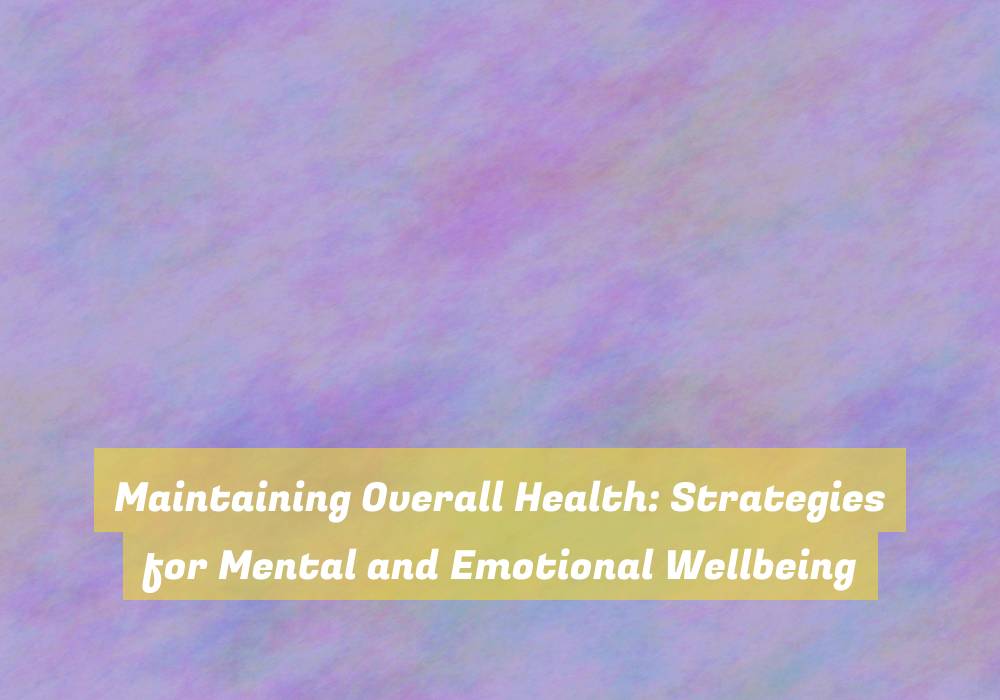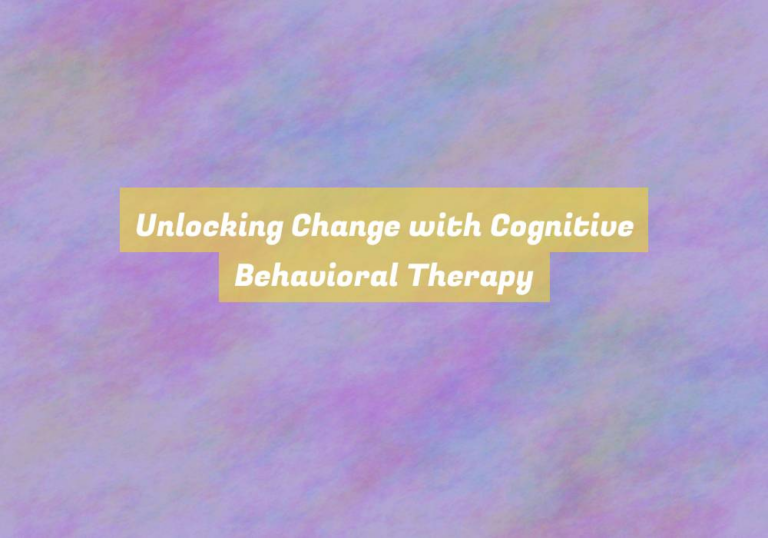Maintaining Overall Health: Strategies for Mental and Emotional Wellbeing
Imagine your mental and emotional wellbeing as a garden that requires consistent care and attention. Just like tending to the diverse needs of various plants, maintaining overall health involves a combination of strategies tailored to nurture your mind and emotions.
You might wonder what specific steps you can take to cultivate a healthy and resilient inner landscape. Well, letG??s explore some practical approaches that can help you cultivate a thriving mental and emotional garden.
Understanding Mental Health
Understanding mental health is crucial for maintaining overall wellbeing and happiness. It involves recognizing and acknowledging the importance of mental and emotional wellness in your life. By understanding mental health, you can effectively manage stress, cope with challenges, and build resilience. It also allows you to recognize the signs and symptoms of mental health issues in yourself and others, seeking help when needed.
When you understand mental health, you become more aware of the impact of your thoughts, feelings, and behaviors on your overall wellbeing. You can identify triggers that may worsen your mental health and develop strategies to address them. Understanding mental health also empowers you to break the stigma surrounding mental illness and have open, honest conversations about mental health with those around you.
Furthermore, understanding mental health enables you to prioritize self-care and establish healthy boundaries to protect your emotional and psychological wellbeing. It equips you with the knowledge to access appropriate resources and support systems when facing mental health challenges.
Ultimately, understanding mental health is an essential foundation for fostering a positive and resilient mindset, contributing to your overall happiness and fulfillment.
Practicing Self-Care
Recognizing the importance of mental and emotional wellness in your life, practicing self-care is essential for maintaining a healthy and resilient mindset.
Self-care involves intentionally taking time to focus on your own well-being, nurturing your mental and emotional health. ItG??s about recognizing your needs and making a conscious effort to meet them.
One way to practice self-care is by setting boundaries. Learn to say no when you need to, and donG??t feel guilty about prioritizing your own needs.
Taking care of your physical health is also vital. Make sure to get enough sleep, eat nourishing foods, and engage in regular exercise.
Additionally, practicing mindfulness and relaxation techniques, such as meditation or deep breathing exercises, can help reduce stress and promote emotional balance.
Setting aside time for activities you enjoy, whether itG??s reading, spending time with loved ones, or pursuing a hobby, is equally important.
Remember, self-care isnG??t selfish; itG??s a necessary component of maintaining overall health and well-being.
Nurturing Emotional Resilience
To nurture emotional resilience, itG??s important to develop healthy coping mechanisms and build a strong support system. When faced with challenges, itG??s natural to experience a range of emotions. However, by cultivating healthy coping strategies, such as mindfulness, exercise, or engaging in hobbies, you can better manage stress and maintain emotional balance.
Additionally, building a strong support system is crucial. Surround yourself with trusted friends, family members, or a therapist who can offer guidance and empathy during difficult times. ItG??s important to communicate your feelings and seek help when needed.
Emotional resilience also involves fostering a positive mindset. Practice self-compassion and challenge negative thought patterns. By reframing difficult situations and focusing on solutions, you can enhance your ability to bounce back from adversity. Moreover, setting realistic goals and maintaining a sense of purpose can contribute to emotional strength. Embrace change as an opportunity for growth and learning.
Building Positive Relationships
As you focus on nurturing emotional resilience, developing positive relationships becomes a vital component of maintaining your mental and emotional wellbeing.
Positive relationships contribute to your overall health by providing support, reducing stress, and fostering a sense of belonging. ItG??s important to prioritize open and honest communication in your relationships to build trust and understanding.
Actively listening to others and expressing your own thoughts and feelings can strengthen the bond you share with them.
Building positive relationships also involves setting healthy boundaries. ItG??s crucial to recognize and respect your own limits, as well as those of others, to maintain balanced and fulfilling connections.
Surrounding yourself with people who uplift and inspire you can significantly impact your mental and emotional state. By nurturing these positive connections, you create a network of support that can help you navigate lifeG??s challenges and celebrate its joys.
Additionally, maintaining positive relationships often involves forgiveness and empathy. Accepting that everyone makes mistakes and approaching conflicts with compassion can help sustain the harmony and well-being of your relationships.
Investing time and effort into building and nurturing positive relationships will ultimately contribute to your mental and emotional resilience.
Conclusion
In conclusion, taking care of your mental and emotional wellbeing is essential for maintaining overall health. By understanding mental health, practicing self-care, nurturing emotional resilience, and building positive relationships, you can improve your quality of life and reduce the risk of mental health issues.
Remember to prioritize your mental and emotional health just as much as your physical health, and seek support if needed. Your wellbeing is important, so take the time to invest in it.




